Rare coins bearing the name “Shimon,” the leader of the Bar Kochba revolt, were among some 1,800 coins, pottery plates with inscriptions, an ancient bronze figurine and antique rings seized by the Israel Antiquities Authority from the Modi’in home of a suspected illegal antiquities dealer this past week.
In addition to several “Shimon” coins minted during the second century Bar Kochba revolt, IAA inspectors, with the assistance of police officers from the intelligence unit, seized coins made of silver from the Hellenistic period, bronze coins from the Roman period and Jewish coins from various periods including the Persian period, the Second Temple period, the time of the Hasmonean reign and from the Great Revolt.
The raid, which was conducted with a judge’s order following suspicions that the man was trading in antiquities without a license, thwarted plans by the dealer to sell the antiquities abroad, the authority said in a press release on Thursday.
The IAA suspects the man of having traded antiquities illegally for a long time, without a license, covering his tracks and smuggling thousands of coins from Israel to countries abroad.
According to the press release, during the search IAA inspectors noted that some of the coins and other items still had fresh dirt on them, indicating that the objects had been recently unearthed from illegal excavation sites around the country.
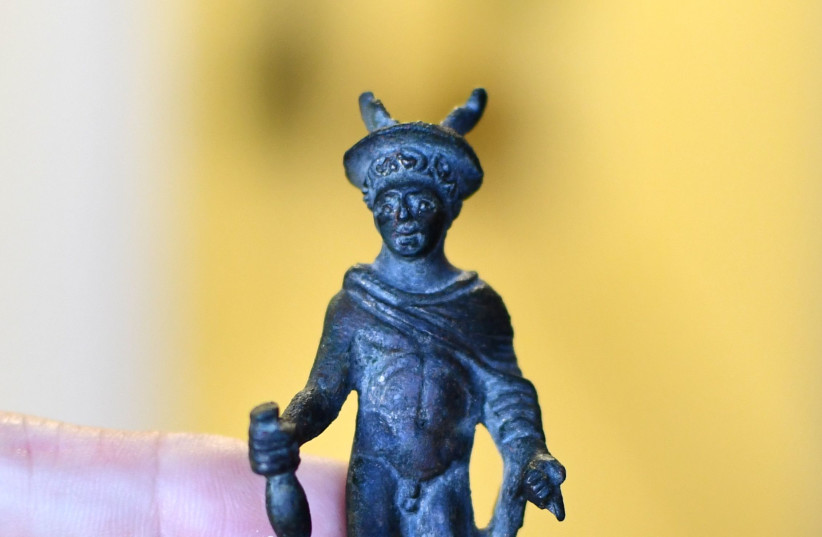
The IAA said this was one of the most significant stolen caches they had uncovered in recent times.
“It is heartbreaking to think of the many antiquities sites with heritage values that were destroyed to make money for merchants,” said IAA antiquities commissioner Ilan Haddad. “This is a history which belongs to all of us, which can no longer be restored.”
A rare silver “shekel” coin, from the days of the Great Revolt against Rome in 67 CE, was found in the suspect’s study. One face of the coin is decorated with a cluster of three pomegranates and the inscription “Holy Jerusalem,” and on the other side there is the inscription “Shekel Yisrael II” above a trophy decoration.
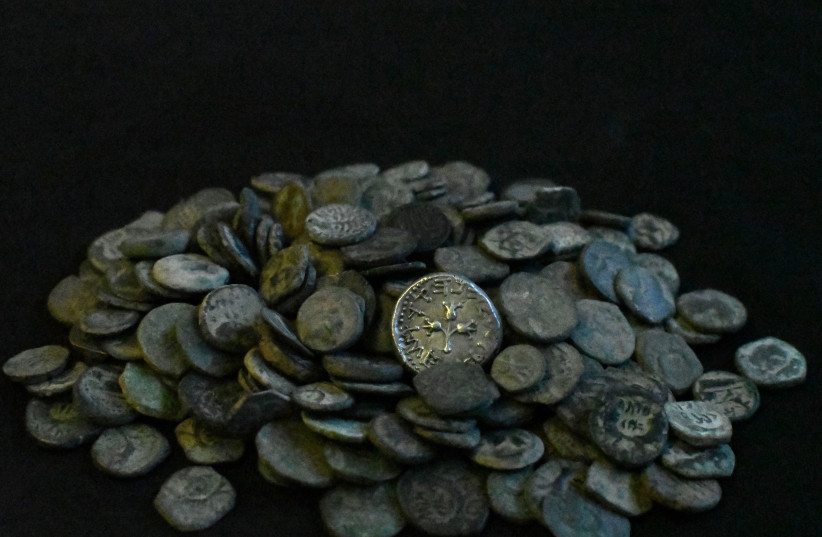
The IAA said they believed the coin was in the middle of being cleaned as only half of it was clean.
In another room of the house, they seized dozens of coins already in envelopes with addresses already written on them, ready for shipment abroad, the authority said.
“The activity of the unit for the prevention of robbery in the Antiquities Authority, together with the Modi’in police, has prevented the smuggling of ancient items from Israel to foreign markets abroad,” said Haddad.
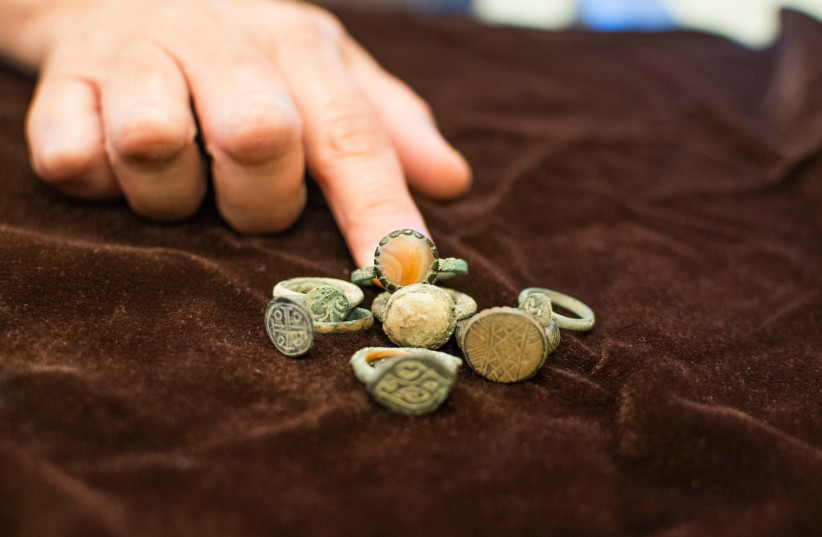
During his interrogation, the suspect admitted to illegal trade, smuggling hundreds of coins abroad, and buying pirated coins from robbers and illegal traders in the Palestinian territories and bringing them into Israel illegally.
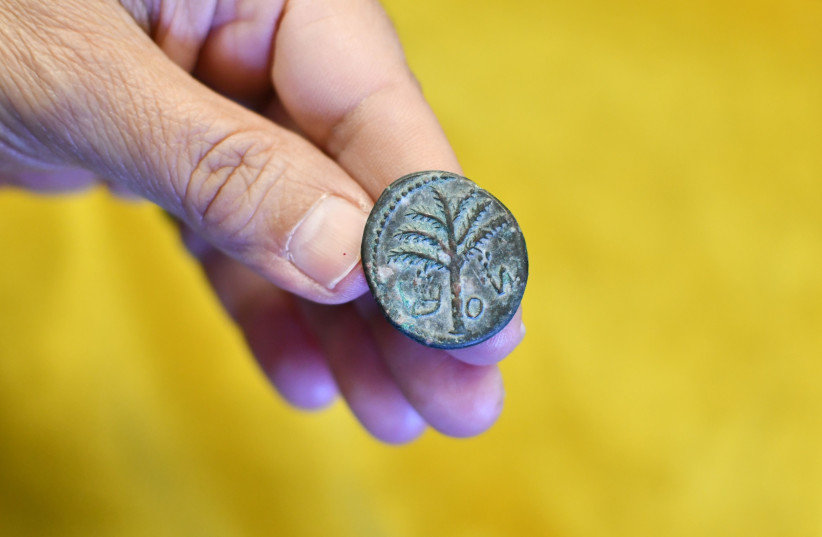
“The inspectors of the Antiquities Authority are struggling every day with the phenomenon of antiquities robbery and the illegal trade in antiquities,” said IAA director Eli Escozido. “The ancient finds belong to the state and the public. Each coin has a unique story through which you can learn about the history and the heritage of the country.”
He said unauthorized antiquities dealers who buy coins from antiquity thieves encourage such thefts, which remove the coins from their historical context.
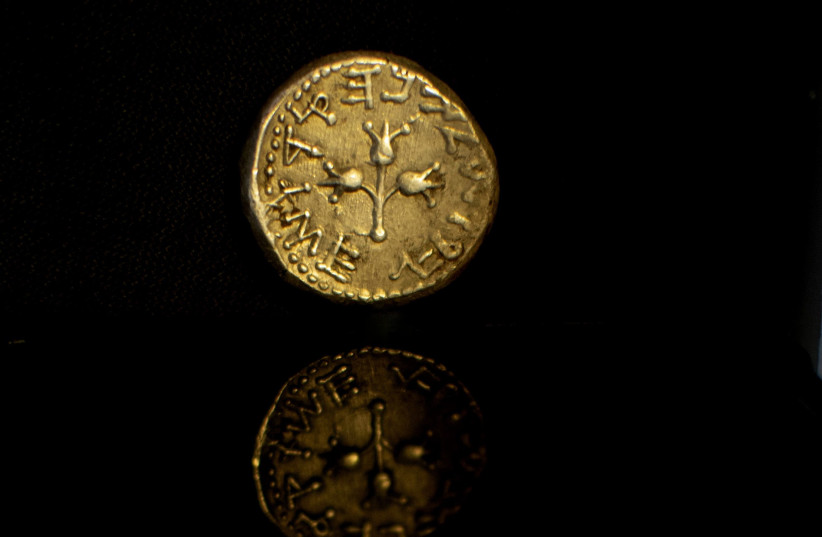
The IAA’s cooperation with other law enforcement agencies to prevent the illegal trade in antiquities will continue, Escozido said. In the coming weeks, the current investigation would be expanded to include those who provided the coins to the suspect.
Following the completion of the investigation, the case will be transferred to the IAA legal department to examine the filing of an indictment against him, the authority said.
